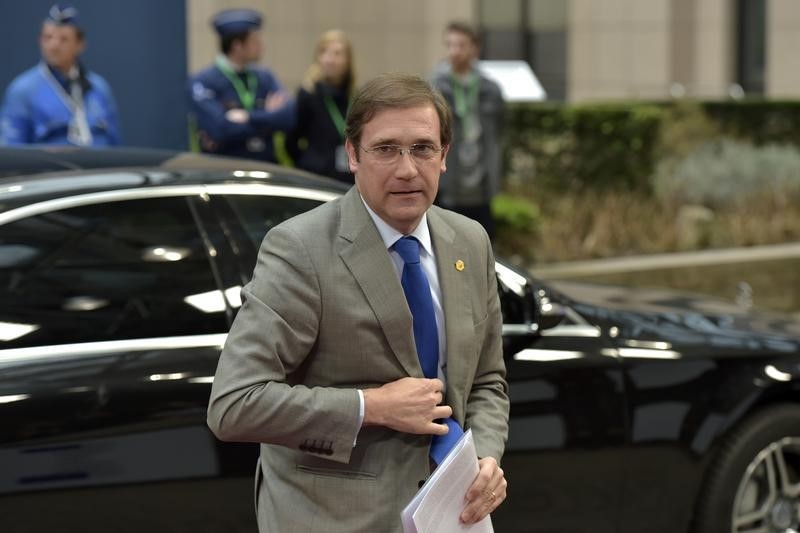LISBON (Reuters) - Portugal's prime minister proposed on Friday the creation of a 'European Monetary Fund' to carry out future bailouts of troubled euro zone states, taking over the role played by the Washington-based IMF during the European debt crisis.
Pedro Passos Coelho told a conference in Florence that the creation of such an organisation, with shared responsibility between member states, was necessary to coordinate monetary and economic policy. It would complement the independent monetary policy conducted by the European Central Bank.
"Otherwise, we are creating a new imbalance within the monetary union," Passos Coelho told the conference on Europe, according to a copy of his speech provided to Reuters.
This is an unusually bold European policy initiative by a country that has tended to keep a low profile after the debt crisis forced it to resort to an EU/IMF bailout in 2011.
"It would allow for a single institution to supervise and monitor the progress of adjustment programs, which means that the European Central Bank and the International Monetary Fund would be dispensed with the mission that they have had so far."
This would remove the ECB from its "awkward and legally challenged position as a monitoring institution in this sort of national assistance programs", he said.
Portugal successfully exited the bailout a year ago under Passos Coelho's austerity-minded centre-right government, which faces an election this autumn.
"Experience in the last five years or so tells us that we need a permanent financial adjustment mechanism to provide technical and financial support to individual member states facing unsustainable situations," Passos Coelho said.
The fund would act as the sole institution that countries in trouble would have to deal with, and its creation would "require the integration of the European Stability Mechanism", which is now charged with bailing out euro zone countries, he said.

He said any aid would be provided "under obvious conditionality" and the fund would not comprise permanent transfers between countries. "Nor does it remove the need for fiscal discipline at the national level," he said.